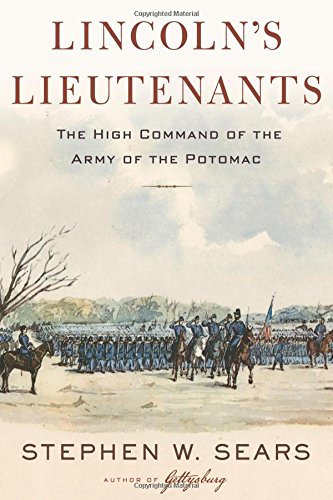Lincoln’s Lieutenants: The High Command of the Army of the Potomac
by Stephen W. Sears
On paper it should have been easy for the United States of America to put down the rebellion that broke out in April 1861. The North had the population, resources and industrial capacity that the people of the South could only dream of. The first battle, fought at Bull Run, should have been the first battle, but there was one problem that the Union had that almost cost it the war. A lack of military leadership that hamstrung every attempt to put the rebellion down by force. No where was this lack of leadership so apparent as in the Army of the Potomac, the Union Army that was tasked with capturing Richmond and ending the war.
Starting with General McClellan, who loved the army so much he refused to actually have it fight. To General Meade who took command two days before the largest battle ever fought on the continent, the leadership had issue that allowed the Confederates to win almost every major battle in the first few years of the war.
This book by Stephen Sears digs deep into the officer corps of the Army in a way that a general history of the conflict will not. Several times I found myself thinking how a single sentence about a battle would open up into a flurry of blame throwing and general incompetence that other wise would be missed.
As a general example: General Meade ordered an assault on a fortified Confederate position at 6;30pm on a given day. Orders were sent to all his Corps commanders to make the attack at that time. Where a general history of the battle would say, “the attack did not launch as planned”. In this book you learn that several commanders claimed to not have received there orders, or decided that they were not ready so attacked later, earlier or whatever. Then each blames the other and in the meantime the rebellion continues.
Sears’s cast of characters is wide and varied and he does a good job in making sure you never lose track fo who is who among the officers. Each has their moment, some heroic, some less than but all are heard from.
This book is recommended if you have a general knowledge of the Civil War and are ready to start the deep dive. The focus on the Army of the Potomac means not much is covered in the Western Theater or other areas and that is good. I would love to see the same sort of book done to bring the same level of focus to the other main Armies of the Republic.
As always, you can get a copy of this book by clicking the cover pic above.

